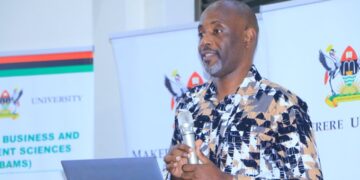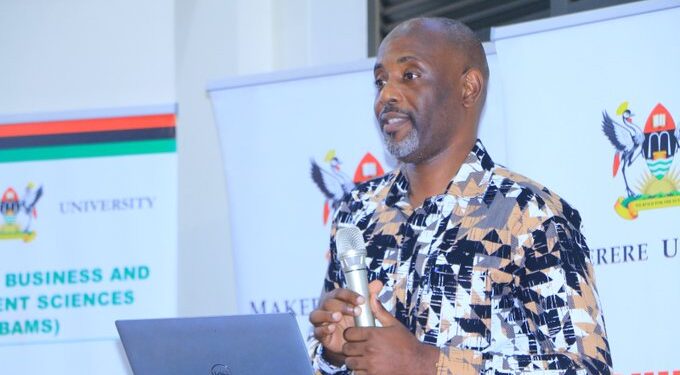The Executive Director of the National Planning Authority (NPA), Dr Joseph Muvawala, has said that gender is not a matter of fairness but a matter of equity.
“All individuals must contribute to a social good if we are to achieve optimal performance. Gender is a social construct with serious consequences,” he was speaking Tuesday during a Policy Dialogue on the Rationale/Need for Mainstreaming the Gender Variable into Social/Public Policymaking held at the School of Public Health, Makerere University.
According to him, incorporating the gender variable into social and public policymaking is not merely about ticking boxes or meeting quotas; it is about fundamentally reimagining how we understand and address societal challenges especially because gender is a social construct.
“When I was writing this paper, I started saying where the weaknesses are not the strengths. There are a lot of weaknesses in our analysis. Gender mainstreaming is not an end in itself, it is a means: It is fairness, transformation, it’s everything we live for.”
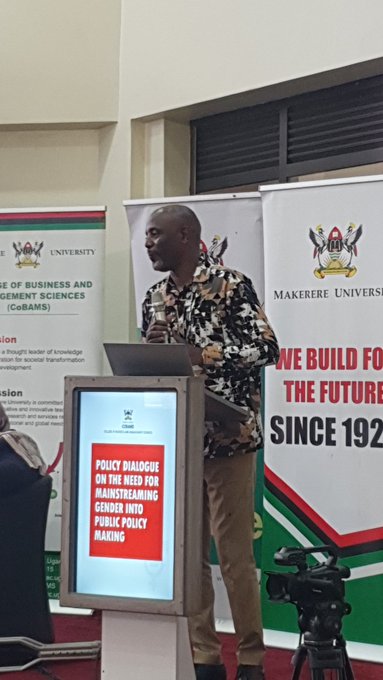
He went on: “Gender mainstreaming is an economic issue and a social issue. Gender has to be endogenous. Based on all the theories we know: it is evident that gender mainstreaming is a fundamental anchor for a sustainable society. Everybody must be included. This means increased productivity.”
He said the failure to include gender as a key variable in public and social policymaking represents a critical oversight with profound implications for the achievement of the optimal objective of enhancing the overall well-being and quality of life for all citizens.
“By neglecting the gender variable in policy-making, we risk overlooking the diverse needs, experiences, and realities of individuals across the gender spectrum. For me, the most unfortunate is the gap in unpaid work. We need to find a methodology to estimate this.”
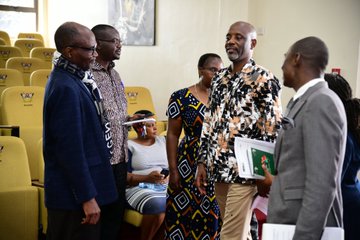
He added: “Every time we say what we say, we must understand it’s not coming from the blue. Unfortunately around gender, there are elite groups that come and capture the space and take you in a different direction. They have the money and will do all the analysis and skew it.”
He said if something is fundamental, it must be for everybody because gender is like a risk.
“Gender should permeate all aspects of life. There are disparities in any society in life. Gender inequalities tell that there is a lot of human capital loss.”
On her part, Hon. Safia Nalule Juuko, the Chairperson of the Equal Opportunities Commission (EOC), said that the commission is mandated to check policies, and cabinet papers for conformity to gender equality standards.
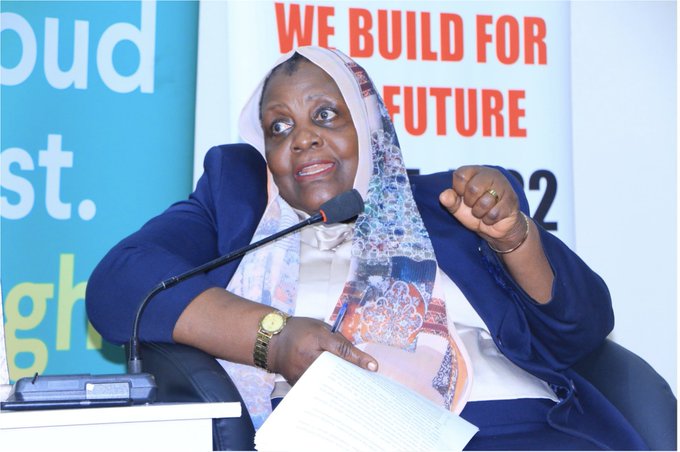
“To Dr. Muvawala, I read the strategy. How many Ugandans know what NPA is planning in NDPIV? If we are strategic, our budget of Shs72 Trillion can be financed.”
She said the different concerns of the people are not being taken care of and the leadership turnover in parliament affects as well.
“There are strategic bottlenecks not making people productive. Little attention is given to people who are marginalised. How many marginalised groups would be counted to be part of this? Inclusion is so crucial. Whoever doesn’t believe it’s crucial to try exclusion? The cost of exclusion is so high,” she pointed out.
According to her, equity budget lines and policy briefs have been developed. “Stakeholders like interest groups have been engaged as well.”
Dr Anna B. Ninsiima, a lecturer at the School of Women and Gender Studies of Makerere University, says the challenge of dealing with gender inequalities is the weak gender equality strategies i.e. institutional failure.
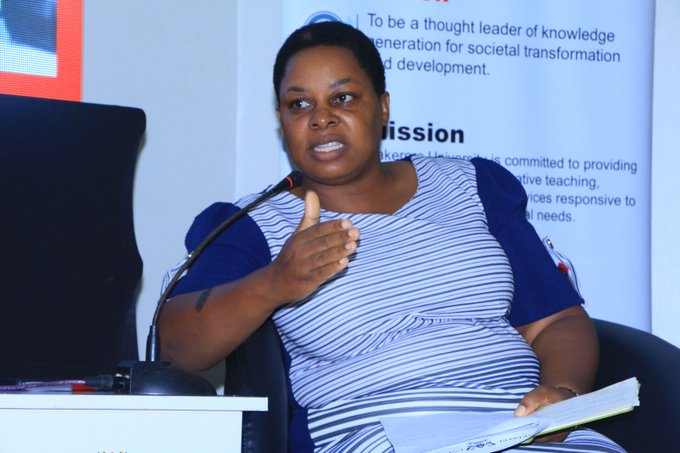
“We talk about girls dropping out of school because they do not have sanitary towels. This doesn’t make sense to many. I never had sanitary towels. By the time you reach school, this cloth is moving around, when you sit, you don’t want to stand – you stay seated the whole day.”
She added: “You need to understand the dynamics around it. When you don’t understand the dynamics around walking 2km. When we talk about Gender, you need to understand the dynamics. We need a healthy human resource. Institutions must work. We are affected by macro-economic policies that we sometimes take lightly.”
She cited the need to strengthen institutions to mainstream gender in education.
